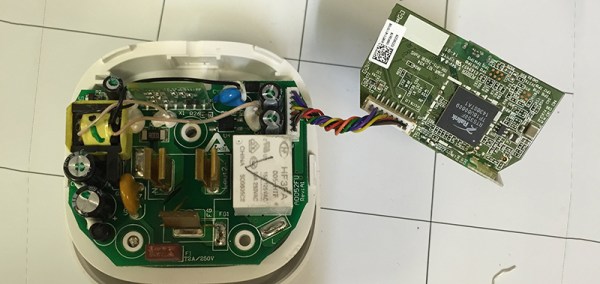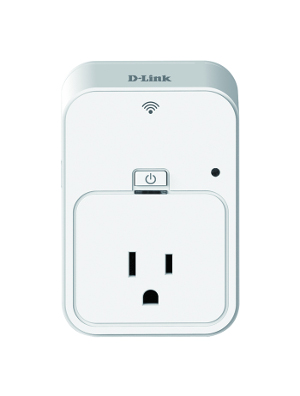Walk into any home improvement store, and you’ll find dozens of smart accessories, home automation equipment, and WiFi-connected ephemera. The Belkin WeMo Insight is one of these devices, giving anyone with $60 and a WiFi network the ability to switch lights and appliances on and off over a network. [John] picked up one of these WiFi plugs, but it didn’t work exactly as he would like. Instead of building a smart plug from scratch, [John] replaced the controller board for a WeMo Insight for his Hackaday Prize entry, making it far more useful and a replacement for devices like the Kill-a-Watt.
In its stock form, the WeMo can only be used though the smartphone app provided by Belkin or through a few third-party services like IFFT. All of these solutions have a limited API, and don’t provide advanced power metrics. To solve this problem, [John] replaced the smart controller board inside the Belkin WeMo with one of their own design.
By volume, most of the electronics inside the WeMo are a transformer, caps, and a relay; the smarts of this smart plug are just a daughterboard. By re-engineering this daughterboard with a new microcontroller, an ESP8266, and a microSD card connector, [John] can replicate the functionality of the WeMo while adding some new features. SD card datalogging for up to four years is now possible, a RTC now provides precise time stamps on all data collected, and a few simple calculations on the microcontroller enable power factor, line frequency, and total energy metering. With the ESP, all this data can be sent up to the cloud with a vastly improved API.
It’s a great project, and something that Belkin should seriously consider for their next revision of the WeMo. For anyone stuck with a stock WeMo, [John] has made all his design files and code available, allowing anyone to replicate this build
You can check out [John]’s Hackaday Prize entry video below.
Continue reading “Hackaday Prize Semifinalist: A Better Smart Plug”


















